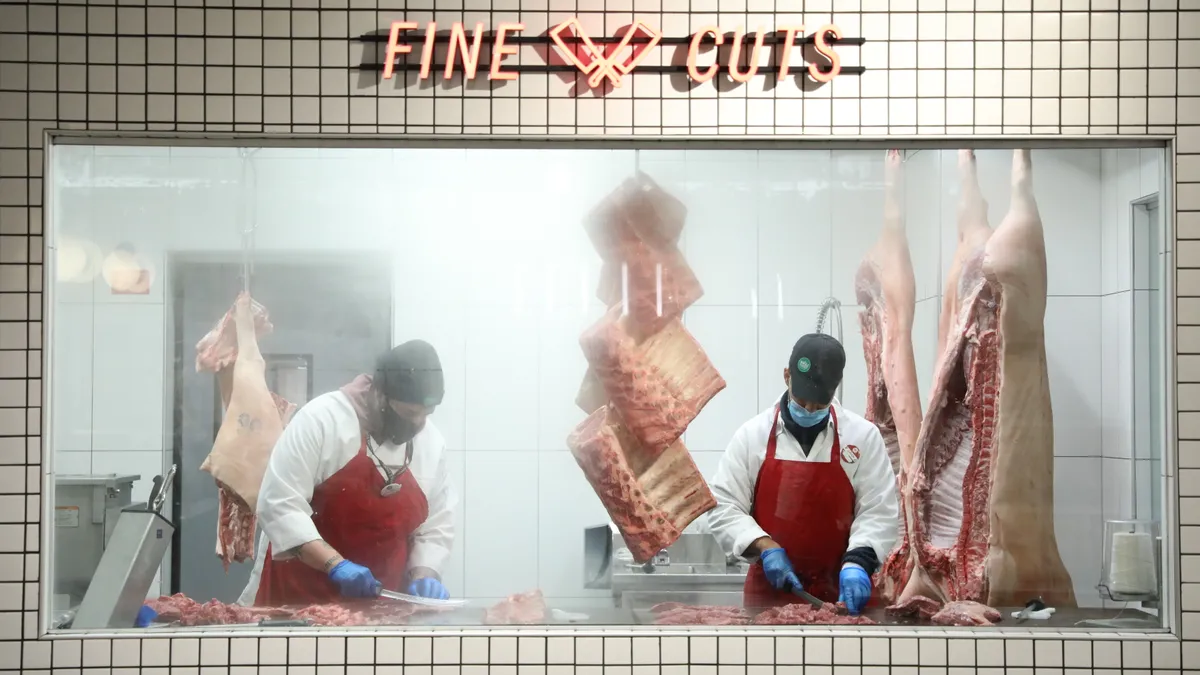Dive Brief:
- Whole Foods Market announced Friday it has upped its standards for animal welfare and third-party certifications for meat products sold in its stores.
- The specialty grocer increased the number of approved third-party animal welfare programs that certify products — a move that it said will improve accountability and transparency for humanely raised animals as well as broaden the scope of suppliers Whole Foods can work with.
- This latest move furthers Whole Foods’ efforts to remain an industry leader in setting health and sustainability standards for its products.
Dive Insight:
Whole Foods said this effort expands the scope of suppliers it can work with, because the additional standards give farmers and ranchers the chance to choose the certification program that best suits their farming system.
These updated quality standards for meat expand to new species not previously covered under the grocer’s animal welfare policy, including bison, veal, venison, duck, goose and quail as well as frozen, smoked, cooked and cured meat products.
The newly approved third-party programs include certifications from A Greener World, Humane Farm Animal Care and Regenerative Organic Alliance, per the press release. These are in addition to the Global Animal Partnership’s Animal Welfare Certified program that Whole Foods adheres to as well as the grocer’s own quality standards.
“Expanding the scope of our meat standards is just another step forward in providing high quality choices for our customers,” Wes Rose, Whole Foods’ vice president of perishables, said in a statement.
By 2026, Whole Foods said its shoppers can find an animal welfare-certified program seal or logo on product packaging, shelf strips or scale tags for all items in its meat department.
At the end of last year, Whole Foods unveiled a new pollinator policy that also works to ensure the grocer’s suppliers are adhering to more environmentally friendly practices. The pollinator policy for the grocer’s fresh produce and floral purchasing aims to support pollinators like honeybees, wasps and butterflies and eliminates the use of certain pesticides and chemicals.













